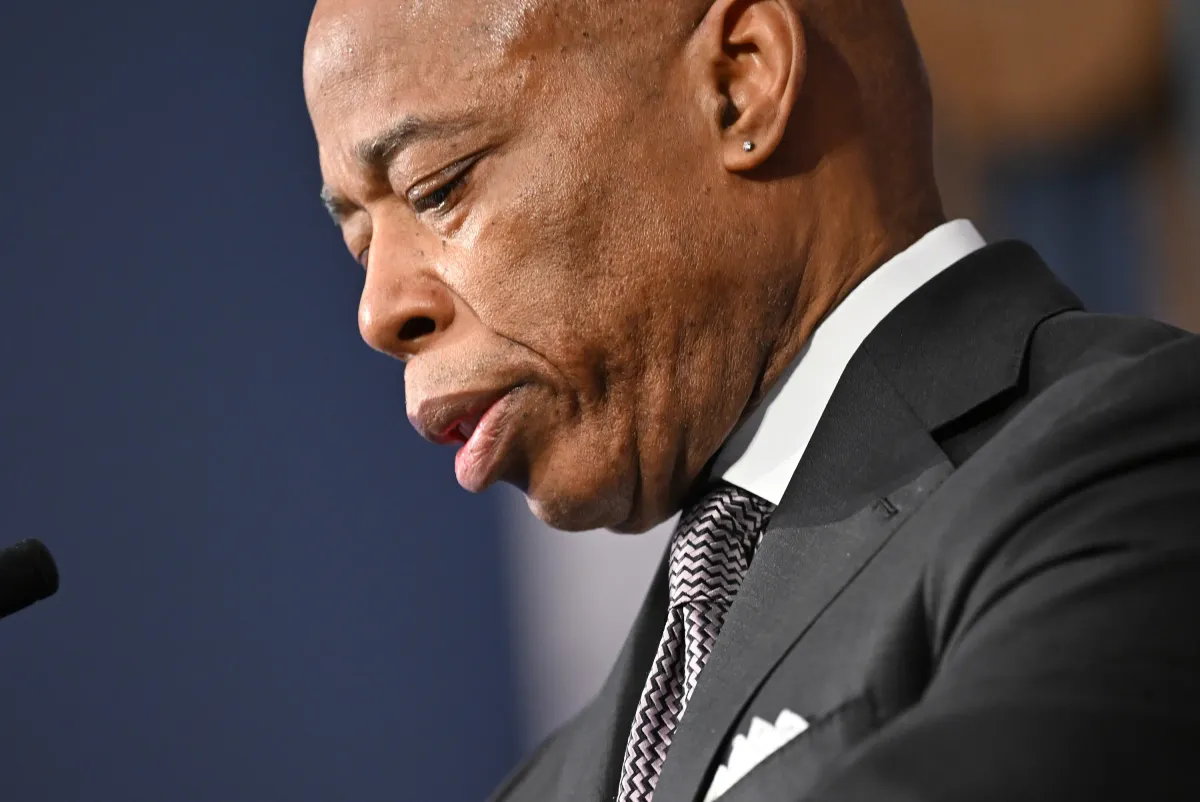Leverage Over Law: The New Rules of American Power
The Adams case exposes a brutal truth: institutional power dies when faced with raw political leverage.

The Justice Department's move to dismiss corruption charges against New York City Mayor Eric Adams, followed by the resignation of Manhattan's top federal prosecutor and multiple DOJ officials, is a crisis of confidence in American institutions that shows how fast the collapse of traditional power structures is accelerating.
In a speedrun of the Saturday Night Massacre, Acting Deputy Attorney General Emil Bove III ordered the Adams case dropped, citing concerns about "interference with the 2025 elections" and the mayor's ability to govern. The real story? A barely concealed quid pro quo linking the dismissal to Adams' cooperation with Trump's immigration agenda.
When federal prosecutor Danielle Sassoon refused to comply, choosing resignation over compliance, she exposed the raw mechanics of how institutional power now operates in Trump's America: not through legal channels but through corruption, bribery, leverage, coercion, and the strategic dismantling of oversight.
The nation has seen this movie before, but never at this pace or scale. The pretense of process has been stripped away entirely. Gone are the careful legal justifications and appeals to precedent. In their place: naked political bargaining, with a major American city's autonomy as the chip. The Justice Department didn't even try to argue the merits of the case against Adams. They didn't need to. Power no longer requires the costume of legitimacy.
Across the federal government, the systematic dismantling of institutional authority in favor of direct executive control continues unabated. Political loyalists are replacing career officials. Agency independence is being subordinated to presidential priorities. The oversight and accountability mechanisms are being rewired into instruments of political power.
It took Nixon's Justice Department weeks to execute the Saturday Night Massacre. The Adams case unraveled in days. The speed matters - it signals that institutional resistance has been overcome and fundamentally broken.
America is watching the death of governance built on the assumption that institutions could meaningfully constrain political power. That model relied on shared norms, professional ethics, and the willingness of career officials to resist improper influence. When Manhattan's federal prosecutors resigned rather than drop the Adams case, they were fulfilling - with honor - their assigned role in the system. But their principled stand shows the system's fundamental weakness: principles alone cannot stop a determined executive armed with leverage and willing to use it.
What replaces the institutional model? The emerging system runs on direct power relationships, unmediated by traditional bureaucratic structures. Look at how the Adams deal worked through back-channel negotiations and public signals. The official Justice Department memo was almost an afterthought, attempting to clothe a naked political transaction in the language of the legal process.
Some will mourn this transformation as the death of the rule of law. But that misses the point. The institutional model was always a fiction - a useful one, but still a fiction. It pretended that power could be meaningfully constrained by process and that political authority could be separated from political interests. The Adams case strips away that pretense, revealing the raw mechanics of power that were always there.
The Trump administration's willingness to openly weaponize federal authority - whether through selective prosecution, strategic pardons, or immigration enforcement - makes explicit what was previously implicit. Power flows not through institutions but through relationships, not through process but through leverage. The sooner society recognizes this reality, the sooner the work can begin on building alternative systems that don't rely on institutional fantasy.
How can governance systems be built that acknowledge the reality of power while preventing its worst abuses? The old institutional model at least attempted to create checks and balances, even if they ultimately proved insufficient. What replaces it?
Decentralization offers one potential answer. The Adams case demonstrates the vulnerability of centralized power structures to capture and corruption. When authority is concentrated in federal agencies, those agencies become irresistible targets for political manipulation. But a system where power was genuinely distributed - where cities and states had true autonomy, where authority was fragmented across multiple competing centers - would be harder to capture and more resistant to systemic corruption.
But high-minded ideas about possible futures won't save American democracy in its current moment of crisis. The breakdown of the justice system itself creates a vacuum that something must fill. Right now, that vacuum is being filled by raw political power exercised through vice and coercion. The Adams case shows where this leads - to a system where even major cities can be brought to heel through the strategic application of leverage.
Eric Adams will be remembered as the corrupt human marker of institutional collapse. The old system is dying. What replaces it - whether something better or something worse - depends on society's willingness to face reality and imagine alternatives. The fiction of institutional authority protected America in its own way. But that pretense has been exposed. Now, something real must be built in its place.


